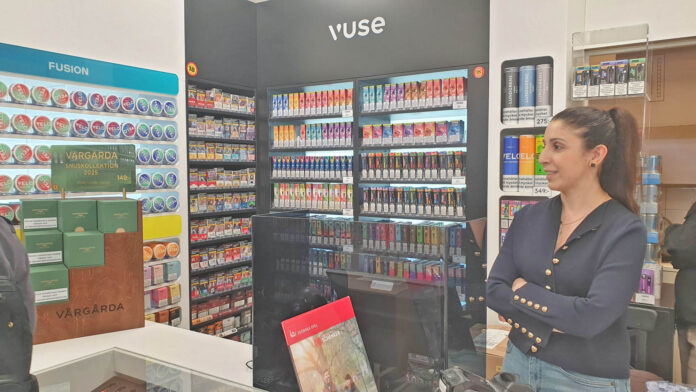STOCKHOLM— Sweden, known for its innovation and consumer choice in the Scandinavian Peninsula, will soon export moist nicotine pouches to the Philippines from JTI’s factory in Vårgårda municipality.
The JTI Sweden factory, powered by 100-percdent renewable energy including its own hydropower plant on the Saveån River, produces Swedish snus and nicotine pouches. These oral nicotine products offer adult consumers alternatives to combustible cigarettes. Snus contains pasteurized tobacco leaves, while nicotine pouches consist of white nicotine powder with flavors. Both are packaged in small pouches placed between the gum and lip, delivering nicotine to the bloodstream without combustion.
Even with the World Health Organization’s recommended ban, these products are reshaping the global cigarette industry because they do not involve burning. JTI produces nicotine pouches under the Nordic Spirit brand, which is gaining popularity in the Philippines as Filipino smokers switch to smoke-free alternatives perceived as less harmful. Currently, dry nicotine pouches available in Philippine stores are from JTI Poland, but JTI Sweden will soon produce moist nicotine pouches for the Philippine market.
Karin Tan, reduced risk products category director at JTI, said the company launched the first dry nicotine pouches in the Philippines at 7-Eleven and Uncle John’s convenience stores in 2023.
“The growth is actually quite phenomenal, and in terms of market sales, we are growing month-on-month,” Tan said. “That demonstrates there is traction for modern oral nicotine products in the Philippine market.”
“You can see in different parts of the Philippines that consumers are starting to really appreciate what this category can bring,” she said.
Tan cited a survey of 7,000 consumers indicating that 80 percent had a positive experience using nicotine pouches. “One of the first things that worked for them was the convenience and the fact that it is discreet. You can be in the office, in the car, or on a flight while using it,” she said. “It is all about giving consumers pleasurable choices.”
Sweden defends its snus and nicotine pouches for contributing to its smoking rate of nearly 5 percent, the lowest in Europe.
JTI hopes to replicate this success in the Philippines, the first country in Asia to permit the sale of nicotine pouches, enabled by Republic Act No. 11900, which regulates vaporized nicotine and non-nicotine products and was passed by Congress in 2022.
Serkan Karasulu, factory lead at JTI Sweden, said the company is employing an integrated work system (IWS) to enhance efficiency and expand production capacity to serve more markets, including the Philippines. “Demand is increasing, and we are expanding our factory production,” he said.
Linas Libikas, JTI manager for Scandinavia, noted that the snus tradition in Sweden dates back hundreds of years.
Emil Eliasson, snus and nicotine pouch lead manager for marketing, said snus originated in France in 1560 when diplomat Jean Nicot prescribed a medication for Queen Catherine de Medici, who suffered from chronic headaches. The queen was advised to crumble tobacco leaves and inhale the powder through her nose, and her migraines reportedly disappeared.
The practice spread throughout Europe, with Swedes adopting the formula. “So why do people use nicotine pouches? I think here in Sweden, there are increasing cigarette prices and a bit of stigmatization around smoking,” Eliasson said. “I would say nicotine pouches are cheaper, very discreet to use, and don’t smell on your clothes or fingers. And you can use them anywhere, anytime.”
The snus tradition led to the development of tobacco leaves-free nicotine pouches in recent years. Laura Ellsinger, corporate affairs and communications manager Scandinavia at JTI Sweden AB, said Sweden may soon achieve smoke-free status (below the 5-percent threshold) with the help of snus and nicotine pouches.
Ellsinger said Swedish consumers use an average of eight nicotine pouches a day, with about 60 percent of users being former smokers. “As the category is quite new, I would say 53 percent of the consumers have been in the category for less than one year,” she said.
Ellsinger cited Sweden’s belief in consumer freedom of choice, allowing individuals to select the products best suited for them. She said nicotine pouches could eventually surpass snus as the top nicotine product in Sweden. “Snus will be number two, and cigarettes will continue to be third,” she said.








